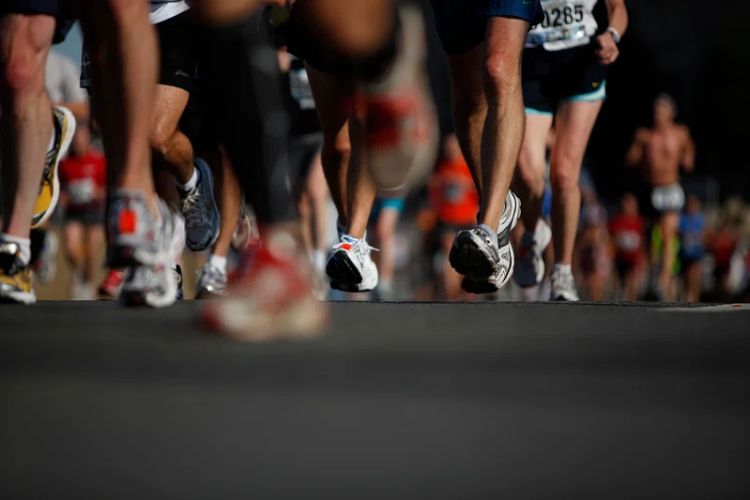Are ‘super shoes’ cheating? Faculty researcher investigates ethics of performance-enhancing running shoes

The findings show that while many runners appreciate the energy-saving benefits of carbon-plated shoes, concerns remain about fairness and accessibility
A new study co-led by a researcher in the Faculty of Arts, Humanities and Cultures explores the ethics of using performance-enhancing running shoes in amateur races.
Published in the Fashion, Style and Popular Culture journal, the research, by Dr Kevin Almond in the School of Design and Professor Lisa Stansbie of the University of Worcester, examines how amateur runners perceive elite-level running shoes like Nike’s Vaporfly – the same shoes worn by Eliud Kipchoge when he broke the two-hour marathon barrier in 2019. It draws on survey responses from over 250 runners, alongside Professor Stansbie’s own experience as an amateur marathon runner.
The findings show that while many runners appreciate the energy-saving benefits of carbon-plated shoes, concerns remain about fairness and accessibility, especially given the high cost, with top models ranging from £220 to £280.
Dr Almond said:
“While debates around performance-enhancing gear have long dominated elite sport, this is the first study to focus specifically on the experiences and opinions of recreational runners. The notion of where the boundaries of technologically improved performance and ability lie will continue to be pushed. This research is a catalyst for new thinking and practices, and it can help inform the future of amateur running.”
Professor Stansbie recalled a moment on the London Underground before the 2021 London Marathon: “The carriage was full of runners, and a runner opposite me was staring at my feet and those of the person next to me. He looked at me and said, ‘London Marathon in cheat shoes for you too?’”
The research highlights that while technical footwear can offer marginal gains, most runners believe that training and personal ability remain the key determinants of success.
Dr Almond added: “Technical progression is part of the natural evolution of any sport. Rather than creating new rules that complicate amateur running, making high-performance shoes more accessible could help ensure a fairer playing field.”
The study contributes to wider debates about ethics, technology and accessibility in sport, and invites amateur running communities to reflect on how they navigate performance, privilege and fair competition.




